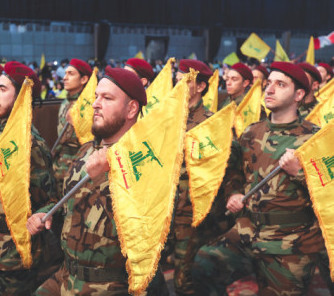The most urgent problem of today’s Iraq is a negative attitude of the local population to the occupation forces. Ike Skelton (D-MO), Chairman of the House Armed Forces Committee, claimed that according to an international public opinion survey 72% of the Iraqis are sure that the presence of the US troops deteriorates security in their country. 70% believe that introduction of additional 30 thousand troops early this year failed to improve security.
President of Iran M. Ahmadinejad urged “the occupation troops” to leave Iraq as soon as possible. “The presence of the occupation forces in Iraq provokes instability in this country”, Ahmadinejad said at a meeting with Abdul Aziz Al-Khakm, leader of Shiite political party “Supreme Council for the Islamic Revolution in Iraq” who currently is visiting Tehran. The head of Iran stated that the Iraqi people themselves without any foreign assistance are capable of establishing order in the country and strengthen its sovereignty. Ahmadinejad also said that the formation of the national government in Iraq is “an important event”. In turn, Abdul Aziz Al-Khakim expressed gratitude to Iran for “backing the establishment of national sovereignty in Iraq”.
At the same time, General David Petraeus, Commander-in-Chief of the American Forces in Iraq, once again blamed Tehran for the support of Iraqi combatants. He said that “Iran bears responsibility for transfer of weapons, training and financial support of radical elements in the neighbor country”. According to him, there is no doubt that Iran is connected with deadly assaults on the American servicemen. The second problem is the US death toll. During ten months of 2007, 855 enlisted men and officers were killed in Iraq. It is the largest death toll in all four years and eight months of the military campaign, a US Command spokesman said. Before it, the record toll was in 2004, when 849 US militaries were killed in Iraq. Totally since March 20, 2003, when the military campaign was started, the US Forces lost 3829 servicemen. And the number of casualties is increasing.
On October 29, Brigade General Jeffry Dorko was wounded in Baghdad. He is the highest top-ranking US military, who was wounded in Iraq since the beginning of the military campaign. General Dorko was wounded several days after he was appointed as Commander and Division Engineer, U.S. Army Engineer Division in the Gulf area, by a road mine when traveling by vehicle in western Baghdad. The General was air-lifted to a military hospital in Germany.
It is notable that a majority of the Iraqis (60%) considers that combatant attacks on the American troops are quite justified, that is confirmed by a public survey conducted in Iraq by ABC and Japanese NHK as requested by British BBC. This opinion has been expressed by 93% of Sunnis and 50% of Shiits.
While General J. Petraeus reports to the US Congress on alleged stabilization of the situation in Iraq during last eight weeks, about 300 positions in the US Embassy remain vacant due to lack of security of the Embassy staff. Diplomats are just afraid to go to Iraq. In this connection the US Department of State is planning to post its diplomats to Iraq compulsorily. As quoted to the Chief of Human Resources of the US Department of State, the American diplomats, who get an appointment in Baghdad, are to serve there at least for one year otherwise they are fired.
Meanwhile, the Iraqi Government is still in a deep crisis after the resignation of ministers representing Sunni “Iraqi Conciliation Front”, party “Iraqi National List” and supporters of radical Shiah leader Muktada as-Sadr. The Government actually lost a status of a government of national unity, and is unable to perform its functions.
French Minister of Foreign Affairs Bernard Kouchner publicly evaluated the efficiency of the Iraqi Government as very low. In so doing, he suggested to US Secretary of State Candoleezza Rice to reshuffle the Government of N. al-Maliki. Such statement caused a scandal – the Prime Minister of Iraq demanded an apology from the French Foreign Minister.
Yet, the facts confirm that the Iraqi Government has succeeded in something. As quoted to Government Security Advisor M. ar-Rabii, the Government approved a new security strategy for 2007-2010. A target of the strategy is to provide for the national conciliation and restore the economic stability and security in the country.
The new Iraqi national security strategy stipulates maintaining stable and friendly relations with the USA, and establishing good-neighbourly relations with all countries of the region. The document states that the main enemies of peace and stability in Iraq are the terrorism, organized crime and illegal armed formations. The new strategy is aimed first of all at coping with these evils. The strategy also provides establishment of national armed forces of Iraq and training of skilled officers to serve in the national security structures. In the sphere of the economy, the document makes provisions for creation of necessary conditions for radical economic reforms, solution of inflation problems, potable water supply, and combating money laundering.
Currently, the Iraqi authorities completely control eight of eighteen provinces: Kerbela, Maysan, Muthanna, Dhi-Qar, Najaf, Erbil, Dahuk and Sulaymaniyyah. The Iraqi authorities also report on the mass return of refugees from Syria and Jordan where about 2 million Iraqis took refuge. .
Taking into account these and other positive changes in Iraq, the United States would rather listen for the constructive statement that “ the Iraqi people themselves without any foreign assistance are capable of establishing order in the country and strengthen its sovereignty” than nurture plans of setting-up permanent military bases in this country. It would be better to listen for and completely withdraw the troops out of this country, then invite all other “gate-crashers” to return home too, that would create the most important preconditions for unraveling the tangle of accumulated Iraqi problems.









